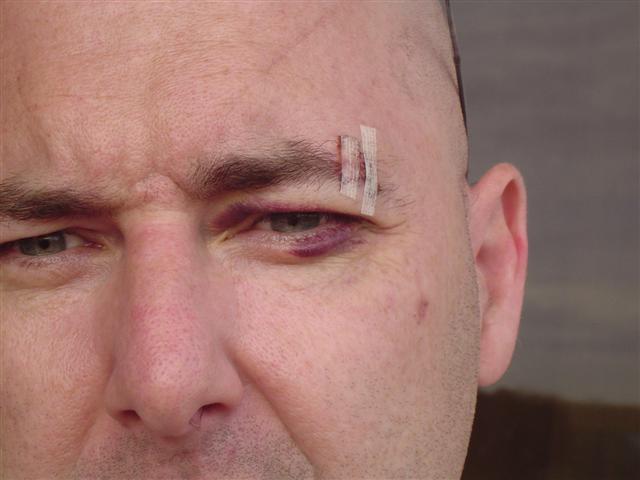the book i read was "the compass of pleasure: how our brains make fatty foods, orgasm, exercise, marijuana, generosity, vodka, learning, and gambling feel so good". first of all, look at that title. do you really think i could have passed that book by and not bought and read it immediately? could you have passed it by? if you could, then learning must not be one of the things you gain pleasure from, or is it that pleasure itself does not interest you. the point here is many people do not have a strong handle on what gives them, or those around them, pleasure and why.
the major discovery for me from the text was, what gives us pleasure is both learned and genetically pre-disposed. this is fundamental to a person's addictions, at the root of experience is the ability for our brains to reward and drive us towards certain behaviors. what i did not grasp was that behaviors that light up my pleasure centers do nothing for someone else. but when you feel a craving, it is the same addiction centers of the mammal brain that evolution has built to motivate us to get up seek out pleasure, regardless of what the specific pleasure is that drives you.
as i write this, i have am eating a burmese beef kabob and sharing a fruit salad with bananas, yogurt, and honey. i also have a orange and lime soda and an espresso romana (iced-espresso with lemon and sugar added). i am listening to the alternative soundtrack for catch and release, wearing cargo shorts and a t-shirt and sitting outside so i can feel the heat of the tropical weather. i am also typing away on my 17 inch macbook, which is too heavy to carry but i gave my air to my daughter and are waiting to replace it. i am waiting to raise the desire levels of making the purchase to the point that i get even more pleasure than i would get if i did it today.
every single one of the above items are based on decisions i made to bring myself pleasure. we all make these decisions all day, every day. the theory of desire at the end of the 19th century was that we made choices to avoid pain. we ate because we were hungry; and wanted to avoid the pangs of hunger. this aligns well with the late-victorian sense of morality that shied from the focus on pleasure across cultural realms. today's consumer driven capitalist society is focused on the economy, built on the acceptance of driving pleasurable "needs". i eat for pleasure, and i love doing it.
what intrigued me by the title of the book was how they equated gambling or generosity to fatty-foods. i don't gamble, i don't smoke... cigarettes, i rarely drop into temple and would never be driven to a multi-day connection with a friend; imagined or not. but, i ate a piece of lime cake last week, it was sweet and sour at the same time, each and every bite caused an explosion of pleasure for me. i am waiting to have another piece, i have thought about it all week and have only stopped myself to give it to myself as a reward for exercising this week. is this what a gambler feels when he puts money down on red and watches the roulette spin? i can't understand how that can be, i just can't understand it... and that is the point.
i was discussing this with someone i know and understand very well, she told me i am one of the top 3 people in the world who understand who she is and what gives her pleasure. in wanting to illustrate the relative pleasure of things i took a piece of paper, and on one side drew a vertical line. the top was labelled "complete pleasure" and the bottom was "almost no pleasure". i then listed the standard pleasures discussed in the book, "food, sex, alcohol, drugs, prayer, generosity, exercise, learning and gambling". i was going to force rank these, but decided there were gaps in the list.
these are the general items, and i had items i would add as my specific pleasures. i listed them out, "writing, travel, photography, reading, cooking, music". what i realized immediately was that this list would be different for each person, but that it would fall somewhere into the same force rank as the standard list. how interesting it would be to understand what gives people around you pleasure, but what about what gives yourself pleasure. make your own list, draw the line and then start ranking items against one another. you are allowed one tie on the entire list, otherwise you need to put the items above or below another item, making a decision of how much you honestly enjoy things.
i was talking to a newlywed this week. she admitted that her shopping was something her husband wanted her to do less of, and then said that she wanted him to stop smoking. i quickly explained the force-ranking exercise, and asked if shopping was at the top of her list. she smiled and shyly said, "almost at the top". not being allowed to dig into this more, i asked what was at the top for her husband. she smiled again and told me smoking was his favorite pleasure. she admitted she knew this before they lived together, and then agreed that asking someone to give up their most intense pleasure was not something you would do to someone you loved. this was always the root of the "pick your addictions" advice.
being a software engineer, i immediately jumped to the idea of using collective intelligence to match people based on their pleasures, and displeasures but that might be another blog to consider, not only that they like something, but how much they like it, and how it ranks against other items. until i build the system, you can do it yourself, rank your items, and have those around you do it too. i suggest the rule of thumb is that the items in the top third of someones ranking have to be accepted, or ignored. everyone doing this exercise needs to be honest and then you need to share the list, because if they don't match you will be a newlywed who is upset your husband does something you dislike and that he wants you to stop your pleasures.
for me, this means i need someone who loves to eat, enjoys reading and exploring language, doesn't mind my excessive use of wikipedia/imdb/dictionary.com to look up details and definitions. they must also love to waste hours in a cafe, accept an addiction to apple products and custom messenger bags, embrace an always on handphone and the effects of cyclical stress. an ability to watch shows on dvd, with heavy repetition on house, the closer, justified and dexter is a major plus, if not a deal breaker for someone who can't understand the comfort this repetition brings me.
i was explaining this last night, focused on the top third and how people may not understand how forceful the feelings of pleasure, or the drive to enjoy these things can be. i discussed the need to draw the line and allow things towards the top to be accepted, even if they are what some might not understand. my companion said angelically, " i get it..."
"it's important to be on top."











I get it as well ... Could easily live with your top third ... :-)
ReplyDelete